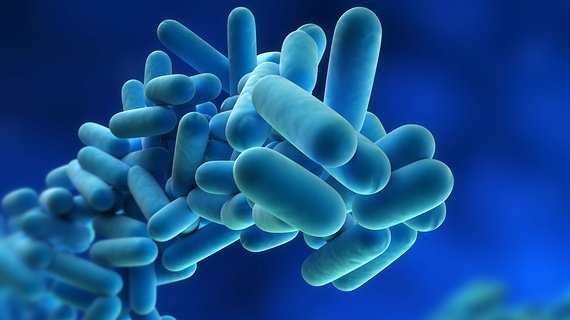Gobbledigook, piffle, poppycock, babble, white noise. The list of words to describe actual other words which describe literary hot air and nonsensical stuff is pretty limitless. By the same token, the cornucopia (see what we mean?!) of verbs, nouns and adjectives we could pilfer from the thesaurus to explain various key elements of legionella risk is equally inexhaustive. Yet should also be avoided at all costs. Which we intend to do, from hereon in.
Instead we're focusing on bringing you what we like to think is a no-nonsense, easy-to-read explanation of precisely what legionella risk is. In Layman's terms. Minus the needless waffle, as nobody needs that. So, getting straight (talking) on with the job in hand, first we remind ourselves what legionella is, before we explore the 'risk' element.
Legionnaires' disease is the potentially life-threatening medical condition/illness which could result, should an individual come into contact with legionella bacteria, which affects the lungs and respiratory system in us humans. Legionella bacteria being the horrible - and largely unseen - substance which can be discovered in any freshwater environment, yet which needs a foot up the disease-spreading ladder from specific water temperatures.
In order to thrive legionella bacteria requires the water temperature in which it's chosen to populate to sustain an ºC between 20 - 45. But that's not the only sure-fire way for legionella to take hold in the water storage system of a business or public service provider, as any dormant water source which contains impurities such as rust, sludge, algae and limescale presents as an equal threat to the unwitting.
Can We Explain Just How the General Public Might Contract Legionnaires' Disease?
Plainly and simply by way of exposure to the legionella bacteria, which manifests in fine droplets of contaminated water. Once inhaled by humans from a public-facing outlet (think taps, showers, sauna steam, humidifiers, water sprinkler systems, drinking fountains, etc), then our lungs will become vulnerable to the onset of Legionnaires' disease, with starts with inflammation of the vital organs. With those people with underlying medical conditions being considered more at risk, according to health professionals.
Essentially Legionnaires' disease is a severe form of pneumonia, and as such older adults, smokers and people who have a history of weakened immune systems are particularly susceptible from the outset.
I've Heard That You Can Contract Legionnaires' Disease By Drinking Contaminated Water. Is This True?
No, primarily, however there is a element of risk in the event that said water is ingested the wrong way. You know, when people say they've "swallowed something the wrong way", meaning a food or liquid has gone down the throat the 'wrong way' yet still enters the body and continues to fulfil its obligations. Well then, problems could, theoretically develop, in terms of Legionnaires'.
So although sounding like something of an urban legend, such rumours are not with actual foundations. Unlike when folk suggest that legionella can be spread from person to person, like a common cold.
But People DO Die As a Result of Contracting Legionnaires' Disease, Right?
Yes, tragically some people do, and annually there's statistic available from the NHS which highlights this very real threat to public health. And unfortunately some otherwise healthy victims can contract the disease, with recent percentages pointing to a figure between 10 - 15% of this demographic (otherwise healthy people who contract Legionnaires') succumbing to the disease.
OK. But Where is Legionella Bacteria Most Likely to Be Found Lurking?
Pretty much any location where water is left to stand within a storage system could, potentially pose a significant risk. With this in mind, larger buildings and vacant properties are often likely hiding places. With regards the former, we're talking about the likes of hotels, schools, restaurants, leisure centres/spas/swimming pools and hospitals (and anywhere that water cooled air conditioning systems and/or cooling towers are installed), while the latter consists of rental properties which may stand empty for certain prolonged passages of time could represent a legionella danger.
Talking All the Above Information on Board, What are the Best Ways to Prevent Legionnaires' Disease From Presenting, By Way of Proactively Identifying/ Tackling the Presence of Legionella Bacteria?
In a similar way that Legionnaires' largely requires two key factors to create havoc in the public domain, there are two clear-cut proposals we can action to ensure its prevention. First and foremost it's in everyone's best interests (property/business owner, local authorities/councils, landlord, etc) to determine that water system should be either cooled down to sub-20ºC or heated to above 60ºC. Therefore, never fall within the aforementioned legionella 'danger zone'.
Elsewhere, and it's imperative that the powers that be (or at least, those responsible for maintaining a building water storage system in whatever professional guise) keep the water free from any impurities so as to safeguard against possible stagnation at source.
What's more, it's hugely important - if not a legal requirement in most scenarios - for companies and individuals responsible for employees/members of the public's health in light of stored water courses being present on their premises, to carry out a legionella risk assessment. Whereby professional water treatment experts perform a series of rudimentary tests and industry-standard procedures to ascertain whether or not there's any trace of legionella bacteria within a particular system examined, and if so, to instruct the owners of the best course of action to follow from that juncture. Duty holders at schools, hotels, restaurants, spas and swimming pools (and any other premises where the public can readily access water) is wholly responsible for organising risk assessments, maintenance and treatment; and ensuring systems conform to relevant health and safety regulations.
Sorry, did we say juncture when we're supposed to be keeping this blog jargon-free? Well, you now get the gist of what's deemed/qualifies as a legionella risk, how Legionnaires' disease could, subsequently result and what measures need to be adopted to keep a lid on the threat.







